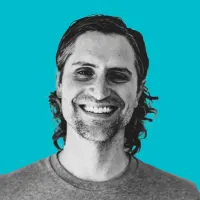

Watching Now
Watching Now
Playlist

Giving Is Receiving
Thomas McConkie • 22:35

Yoga Nidra with Kelly Boys
Kelly Boys • 42:25

Letting Go Of Knowing
Thomas McConkie • 22:05

Hear The Cries Of The World
Thomas McConkie • 27:45

How To Not Suffer
Thomas McConkie • 24:08

Hold Stroke
Thomas McConkie • 24:43

Sit in Stillness
Thomas McConkie • 21:22

Who Am I?
Thomas McConkie • 36:27

Metalineage
Thomas McConkie • 25:27

What Survives
Thomas McConkie • 21:29

Stop Lying
Thomas McConkie • 21:09

Lessons From a Healer
Thomas McConkie • 39:14

Extraordinary Happiness
Thomas McConkie • 25:01

New, Gone
Thomas McConkie • 22:23

Sons and Daughters of Infinity
Thomas McConkie • 24:53

Your Basic Goodness
Thomas McConkie • 25:10

On Being Complete
Thomas McConkie • 24:02

Waves of Impermanence
Thomas McConkie • 24:02
In this playlist

